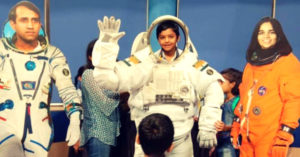 Indian Space Research Organisation (ISRO) has launched a special programme for schoolchildren called Young Scientist Programme or Yuva Vigyani Karyakram (YUVIKA), in tune with the government’s vision “Jai Vigyan, Jai Anusandhan”. The program is primarily aimed at imparting basic knowledge on space technology, space science and space applications to the younger ones with the intent of arousing their interest in the emerging areas of space activities. Indian Space Research Organisation (ISRO) has launched a special programme for schoolchildren called Young Scientist Programme or Yuva Vigyani Karyakram (YUVIKA), in tune with the government’s vision “Jai Vigyan, Jai Anusandhan”. The program is primarily aimed at imparting basic knowledge on space technology, space science and space applications to the younger ones with the intent of arousing their interest in the emerging areas of space activities. |
| Source- The Indian Express |
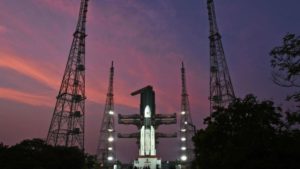 Indian Space Research Organisation (ISRO) will launch 29 satellites including the primary payload EMISAT, on the first of April. Polar Satellite Launch Vehicle, PSLV-C45 will take off from Satish Dhawan Space Centre in Sriharikota tentatively at 9:30 AM carrying the satellites onboard. EMISAT has been developed for monitoring radar network by India. EMISAT, weighing 436 kg, is intended for electromagnetic spectrum measurement. It will be placed in an orbit of about 753 km altitude. The customer payloads are from Lithuania, Spain, Switzerland and the US. They will be hurled into space at an altitude of about 505 km. Indian Space Research Organisation (ISRO) will launch 29 satellites including the primary payload EMISAT, on the first of April. Polar Satellite Launch Vehicle, PSLV-C45 will take off from Satish Dhawan Space Centre in Sriharikota tentatively at 9:30 AM carrying the satellites onboard. EMISAT has been developed for monitoring radar network by India. EMISAT, weighing 436 kg, is intended for electromagnetic spectrum measurement. It will be placed in an orbit of about 753 km altitude. The customer payloads are from Lithuania, Spain, Switzerland and the US. They will be hurled into space at an altitude of about 505 km. |
| Source- The Hindu |
 Tech giant Google has unveiled a new app ‘Bolo’ that aims to help children in primary school learn to read in Hindi and English. Tech giant Google has unveiled a new app ‘Bolo’ that aims to help children in primary school learn to read in Hindi and English. |
Bolo App
|
 Indian Space Research Organisation (ISRO) and France Space Agency CNES have agreed to collaborate on the following avenues: Indian Space Research Organisation (ISRO) and France Space Agency CNES have agreed to collaborate on the following avenues: |
| Maritime Surveillance ISRO and CNES have signed an agreement to set up a maritime surveillance centre in the country. The agreement intends to supply an operational system for detecting, identifying and tracking ships in the Indian Ocean, provides for a maritime surveillance centre to be set up in India, sharing of capacity to process existing satellite data and joint development of associated algorithms. ISRO and CNES will build a constellation of satellites for maritime surveillance intended to identify and track ships in the Indian Ocean. |
| Training for Gaganyaan project ISRO and CNES have signed an agreement to train Indian Scientists for the ‘Gaganyaan’ project at the Toulouse Space Centre in France. Indian Scientists will also be trained at CADMOS, the centre for development of microgravity applications and space operations, and the MEDES Space Clinic in France. India has also signed an agreement with Russia for the Gaganyaan Project. |
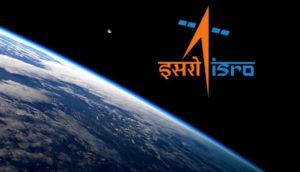 Indian Space Research Organisation has launched ‘Yuva VIgyani Karyakram’, a ‘Young Scientist Programme’ for the School Children to be studying in the 9th standard. ‘Catch them young’ residential training programme will be of around two weeks duration during summer holidays with a proposal to select 3 students from each State and Union Territory, covering CBSE, ICSE and State syllabus. Indian Space Research Organisation has launched ‘Yuva VIgyani Karyakram’, a ‘Young Scientist Programme’ for the School Children to be studying in the 9th standard. ‘Catch them young’ residential training programme will be of around two weeks duration during summer holidays with a proposal to select 3 students from each State and Union Territory, covering CBSE, ICSE and State syllabus. |
| Source: News On AIR |
 Bengaluru-based Signalchip has unveiled semiconductor chips for 4G, LTE and 5G modems. These are first such chips developed in India. All devices and infrastructure in India whether imported or domestically manufactured, currently use imported silicon chips. 4 chips were launched by the SIGNALCHIP as part of its series code-named ‘Agumbe’. They also support positioning using India’s own satellite navigation system NAVIC. Bengaluru-based Signalchip has unveiled semiconductor chips for 4G, LTE and 5G modems. These are first such chips developed in India. All devices and infrastructure in India whether imported or domestically manufactured, currently use imported silicon chips. 4 chips were launched by the SIGNALCHIP as part of its series code-named ‘Agumbe’. They also support positioning using India’s own satellite navigation system NAVIC. |
| Source: Business Standard |
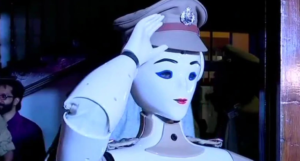 Kerala Chief Minister, Pinarayi Vijayan, inaugurated India’s first Humanoid Police Robotnamed KP-BOT, ranked as Sub-Inspector (SI), at the Police Headquarters inThiruvananthapuram, Kerala. The robot’s gender is declared female keeping in mind women empowerment and gender equality. In 2018’s Cocoon Cyber Conference it was announced that robots will be included in the police force, after which, the work on the project was started by state police Cyberdome and a Kochi based start-up, Asimov. Kerala Chief Minister, Pinarayi Vijayan, inaugurated India’s first Humanoid Police Robotnamed KP-BOT, ranked as Sub-Inspector (SI), at the Police Headquarters inThiruvananthapuram, Kerala. The robot’s gender is declared female keeping in mind women empowerment and gender equality. In 2018’s Cocoon Cyber Conference it was announced that robots will be included in the police force, after which, the work on the project was started by state police Cyberdome and a Kochi based start-up, Asimov. |
| Source: India Today |
 Chinese news agency Xinhua unveiled the world’s first female AI news anchor Xin Xiaomeng. She has been developed in collaboration with Sogou Inc, a search engine company. Earlier, Xinhua also developed Qiu Hao, the world’s first male AI news anchor at the World Internet Conference in Wuzhen held in November 2018, who is capable of mimicking human facial expressions and mannerisms while reading out news-reports. Chinese news agency Xinhua unveiled the world’s first female AI news anchor Xin Xiaomeng. She has been developed in collaboration with Sogou Inc, a search engine company. Earlier, Xinhua also developed Qiu Hao, the world’s first male AI news anchor at the World Internet Conference in Wuzhen held in November 2018, who is capable of mimicking human facial expressions and mannerisms while reading out news-reports. |
| Source: The Tribune |
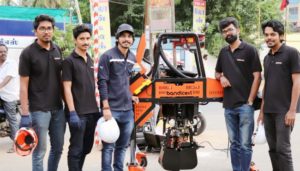 Bandicoot, a drainage-cleaning robot, has been introduced for the first time in Indiaat the Kumbakonam city corporation as part of efforts to rid of manual scavenging at the cost of Rs 18 lakh in Chennai, Tamil Nadu. It is a semi-automatic robot can enter manholes for cleaning sewage lines with its robotic arm and is equipped with 5 night-vision cameras to relay the scenario underneath. Drainage cleaning could be detected by viewing the blockages on the screen. Bandicoot, a drainage-cleaning robot, has been introduced for the first time in Indiaat the Kumbakonam city corporation as part of efforts to rid of manual scavenging at the cost of Rs 18 lakh in Chennai, Tamil Nadu. It is a semi-automatic robot can enter manholes for cleaning sewage lines with its robotic arm and is equipped with 5 night-vision cameras to relay the scenario underneath. Drainage cleaning could be detected by viewing the blockages on the screen. |
| Source: News On AIR |
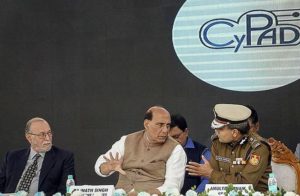 Cyber Prevention Awareness and Detection (CyPAD) Centre and the National Cyber Forensic Lab (NCFL) were inaugurated by Union Home Minister Rajnath Singh and LG Anil Baijal in Dwarka, New Delhi. To spread awareness among school students and teachers, the Ministry of Home Affairs (MHA) has started a popular Twitter handle @CyberDost. Cyber Prevention Awareness and Detection (CyPAD) Centre and the National Cyber Forensic Lab (NCFL) were inaugurated by Union Home Minister Rajnath Singh and LG Anil Baijal in Dwarka, New Delhi. To spread awareness among school students and teachers, the Ministry of Home Affairs (MHA) has started a popular Twitter handle @CyberDost. |
| Source: Money Control |
You need to login to perform this action.
You will be redirected in
3 sec
